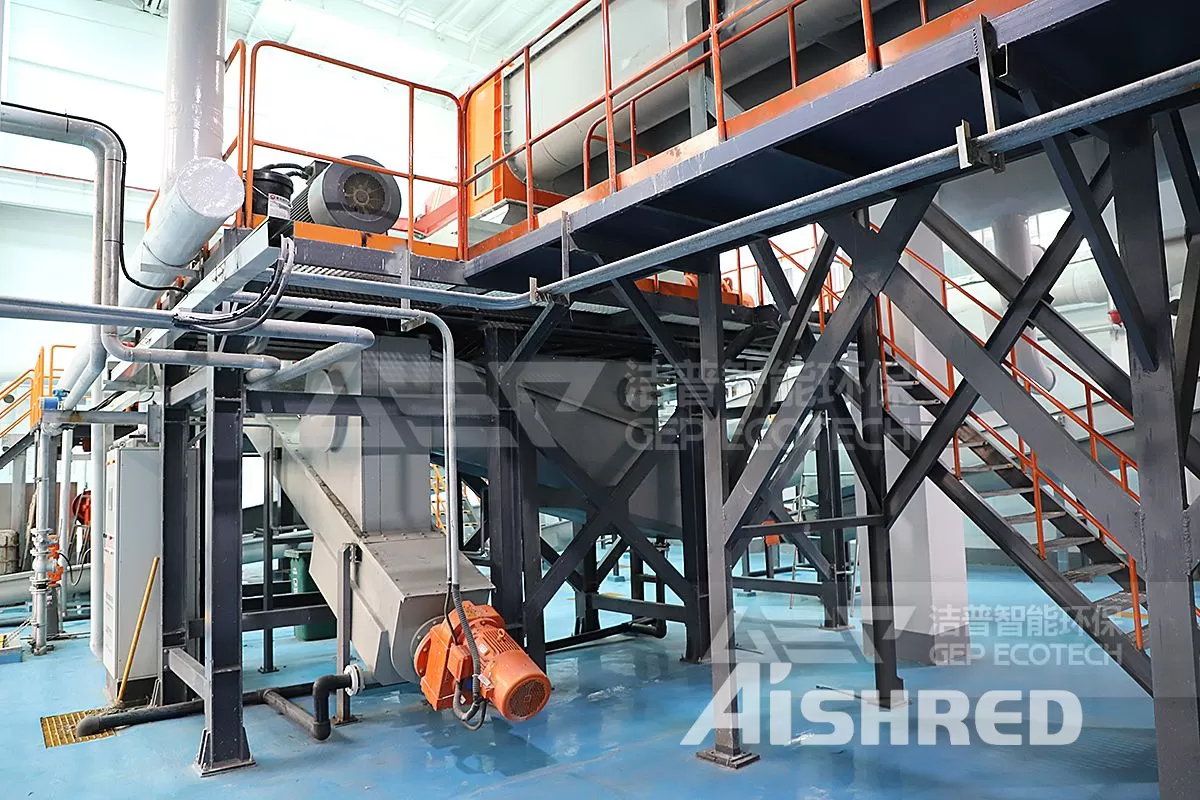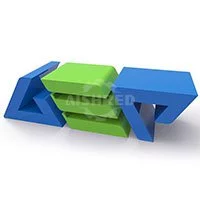Food waste is a type of domestic waste, which is rich in organic matter such as vegetables and bones, and can be made into fuel, fermented to produce biogas, or fertiliser. Food waste accounts for about 50% to 60% of domestic waste, so it is important to make biogas from food waste instead of landfill to improve the utilisation rate of domestic waste.
At present, domestic waste resource disposal centres generally process domestic waste into RDF fuel rods for power plants, and the production of biogas from food waste requires a clear classification at the source of collection and transportation. As food waste contains more organic matter, oil and grease, etc., and has a higher water content, there is a big difference between the treatment process and making RDF fuel rods.

According to our GEP ECOTECH's project, the biogas from food waste first goes through pre-sorting to remove large pieces of debris, then is shredded by a GDF food waste shredder, then through pre-sieving, organic matter fine sorting, pressing and dewatering, and finally the food waste is processed into a uniform fine organic matter. The oily waste water produced by the process is also treated accordingly. After the processing of this food waste disposal system, the food waste is turned into semi-dry fine material, which is not only easy to store and transport, but also has a better fermentation effect at a later stage.
GEP ECOTECH has long been engaged in the development of technology and equipment in the field of solid waste treatment, we can design flexible disposal solutions for industrial waste, domestic waste and food waste according to different situations, if you have related questions, please feel free to contact us.

